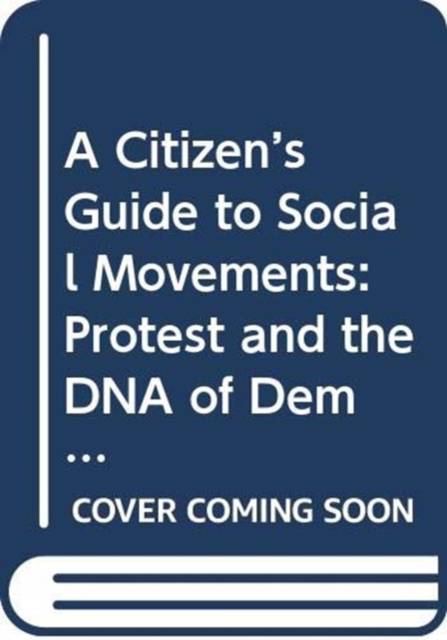
- Afhalen na 1 uur in een winkel met voorraad
- Gratis thuislevering in België vanaf € 30
- Ruim aanbod met 7 miljoen producten
- Afhalen na 1 uur in een winkel met voorraad
- Gratis thuislevering in België vanaf € 30
- Ruim aanbod met 7 miljoen producten
Omschrijving
The role of social and political movements are crucial in shaping the way we understand democracy. This brief and accessible guide explains how the formal rules of democratic political systems encourage citizens to engage in the kinds of action we commonly associate with movements: picketing, petitioning, fundraising, occupying public spaces, chanting, displaying slogans, demonstrating, parading, blocking access to public spaces and (sometimes) violence. Markoff discusses the ways movements have been instrumental in redefining democracy and how they have changed as new issues have emerged, new means of communication have affected the possibilities for mobilization, and other kinds of institutional change have altered the constraints within which movements act. Markoff is especially focused on the role of movements within democratic politics, the interplay of movements with political party competition, the passage of legislation, and the actions of regulatory agencies.
In addition to looking at the national politics of democratic states, this short primer also examines the ways in which democratic claims have also figured in justification for assertions of domination abroad as well as in claims for overturning colonial rule. The book ends with speculation about the current forms of social movement activity and the ways these might reshape democratic politics for good or ill in the near future.
Specificaties
Betrokkenen
- Auteur(s):
- Uitgeverij:
Inhoud
- Aantal bladzijden:
- 128
- Taal:
- Engels
- Reeks:
Eigenschappen
- Productcode (EAN):
- 9780415661041
- Verschijningsdatum:
- 3/01/2021
- Uitvoering:
- Paperback
- Formaat:
- Trade paperback (VS)
- Afmetingen:
- 138 mm x 216 mm

Alleen bij Standaard Boekhandel
Beoordelingen
We publiceren alleen reviews die voldoen aan de voorwaarden voor reviews. Bekijk onze voorwaarden voor reviews.











